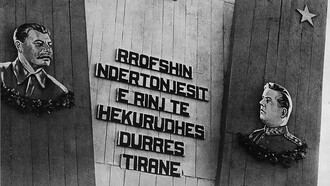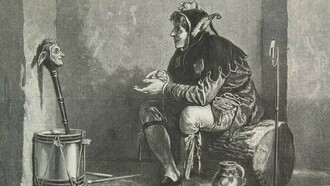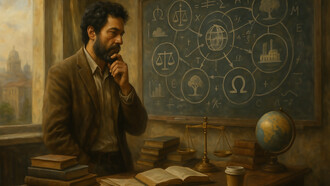The philosopher Ernst Cassirer said that the awareness of a difference is the awareness of a connection. We can say, in other words, that the perception of equality is only possible when a difference is arbitrated, or even, the connection, the points of connection are those that allow for realization. Considering equality or difference presupposes a third point of comparison. To be equal to A is to be different from non-A. Human beings, who are similar to each other, for example (they are all human), are different in themselves (individuals).
When we create parameters and rules, we establish differences or similarities that arise from situations outside what exists. The comparison is always the result of other contexts. We create categories and types based on usefulness and advantage. But equality and difference can give rise to ideas of superiority and inferiority, better and worse, and so animals become extinct, cultures are destroyed, or nations are subjugated. We are all living beings, equal as such, and different as individualised structures.
Various events in history, whether in the distant past or the present day, lead us to question the basis of our humanity, what we define and accept as human or monstrous actions, and how we perceive similarities and differences in attitudes, actions, and situations.
We are all human beings, we are inhabitants of the world, and we can be exiles, refugees, or inhabitants of our natural place. Without the idea of homeland, of the nation, there would be no idea of exile, stateless person, or refugee. Conventions go beyond what is proper. Authenticity is transformed by uses and customs, by references that turn the natural into inauthentic. The legitimate is no longer the authentic and the authentic is never signified by the personalized, since this process is crossed by variables that alter and deform it as an autochthonous reality.
Being contained within oneself extrapolates and transposes borders since they are imaginary and arbitrary lines established according to conveniences that differ from the processes that make it possible to legitimize them. What is due, what is typical of any situation, is currently the result of arbitrary attributions. Having or not having a right no longer corresponds to legitimacy, as it is guided by the bias of convenience, policies, and objectives that one wants to imprint. It's an absurd moment in which reality becomes raw material for creating other realities capable of supplying and overshadowing reality. What is attributed or arbitrated seeks to neutralize what is found in order to extract meanings from it and affirm postulates. It's like establishing the text from the pre-text. It's a pretext for justifying and establishing new doxas. Furthermore, it is evidence that is the result of recurrences that confuse but allow for explanations.
Concern about differences makes it possible to change attitudes as much as it leads to insisting on new connections that make other situations explicit. Revealing oppressed groups, for example, can be a way of justifying oppression as well as denouncing it. One or the other depends on what you want to achieve.
When encountering social outcasts, observing from a psychological point of view, one discovers how humanity, how man resists: it is still a man who kills and destroys, who behaves like scum, who expresses dehumanization, who makes monstrosity explicit? Who separates one from the other? Who decides what is human and what is monstrous? Or even, when is it decided? New pragmatic and/or humanitarian criteria and visions make it possible to maintain differences and connections, as Cassirer thought. Is it still a man who emerges as a monster or is it a monster who is exiled from the human group? Differences and repetitions don't define, although they clarify a lot.
Being the same or different means little in the process of authenticating reality. They don't work with the multiple. What prevails is individuality, and with it, difference or equality doesn't mean anything, because what predominates is the connection with oneself, with the other, and with the world.
Being connected, being in the world, in life with its interactions, structures participation and encounter. The distancing - resulting from social and economic isolation - creates discontinuities responsible for disparities, chasms that exile human beings from their social habitat, reducing them to survival by transforming the necessary, the inevitable, into the only standard from which all connections, and consequently differences and equalities, are established.
This is how systems are created for routing trajectories, their differences, and connections - it's the algorithm that neutralizes everything as it clarifies and teaches. Technology is an instrument that realizes the apprehension of differences and equalities, just as it is also the tool that crushes and takes advantage of everything as it homogenizes differences and impediments.















